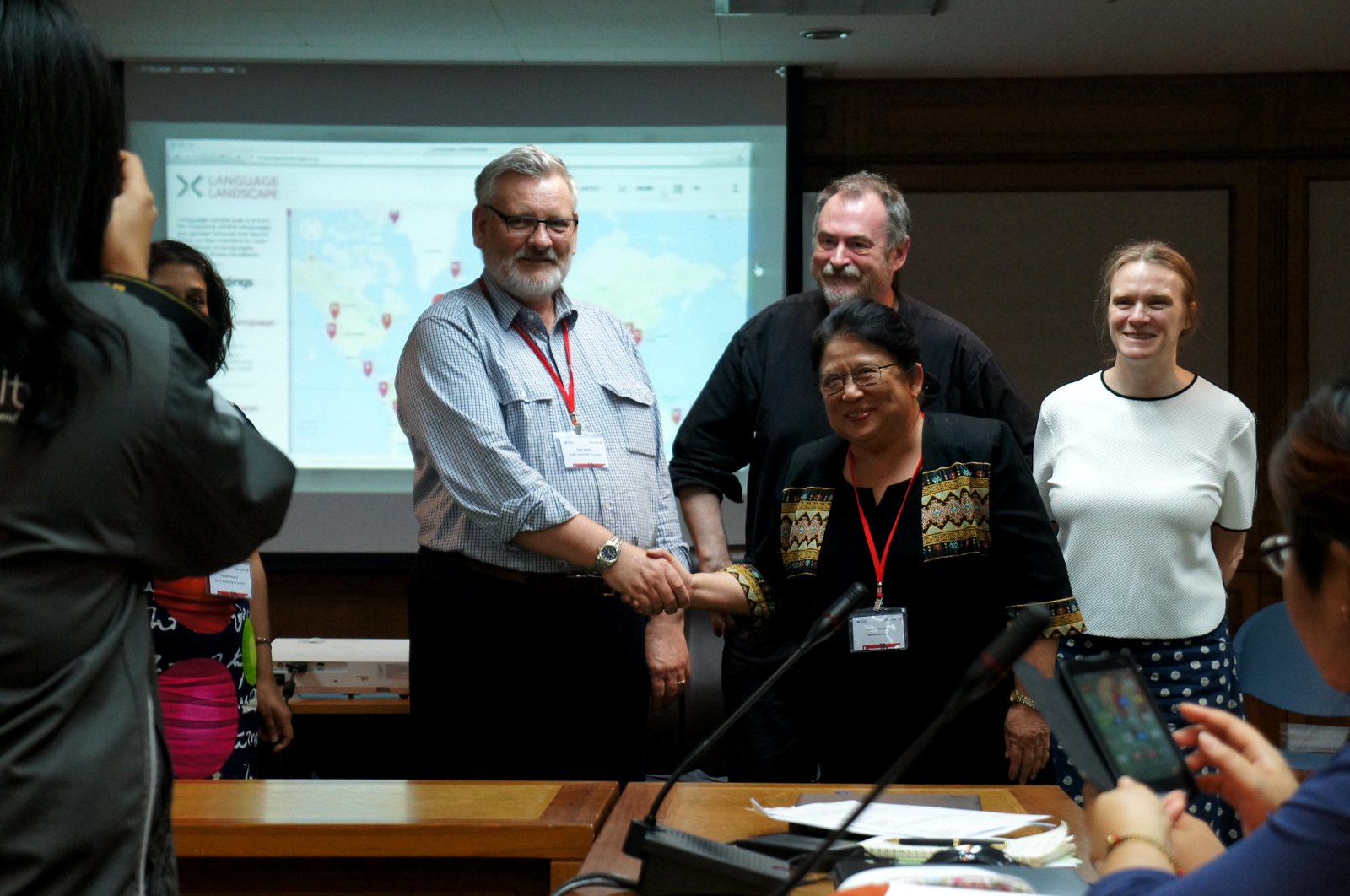

Who has made the assumption that travelling is for holiday only? Or perhaps, at a push, for business people in business suits? This week, I got to go to Thailand to attend a workshop funded by the British Council and hosted by Mahidol University, Bangkok. More specifically, a workshop on the documentation and preservation of indigenous languages. I got so excited about going to Thailand however, that I may have forgotten to explain this beforehand! A team of British researchers undertook a 12 hour flight (and in my case a delayed five hour coach journey) to meet our Thai counterparts – something which is rarely possible. There are about 10 000 kilometres between us which makes in-person collaboration a little complicated, at the best of times.
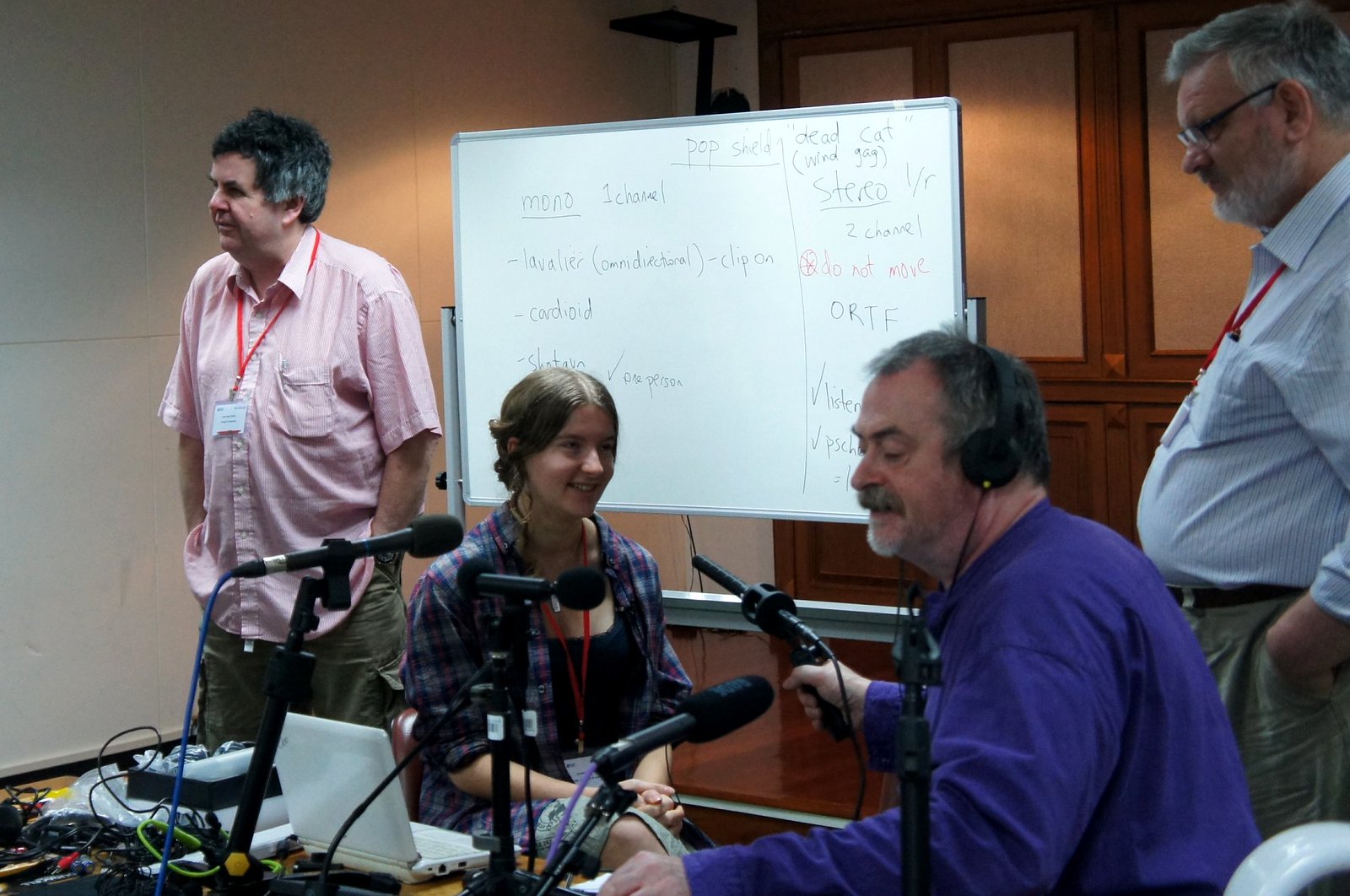

One of the things we came to learn about, was practical experience with audio equipment. I now know the difference between mono and stereo microphones, and when to use a dead cat. I am such a pro. An additional advantage is that is also makes you look very professional when you are running around with the equipment. Whether you remembered to switch it on or not. Fortunately, my fantastic team has magical collaboration powers, so we did actually manage to make some quite professional recordings.


Our task for the week was to record some of the Nyah Kur language. The Nyah Kur ethno-linguistic community is situated some 5 hours north of Bangkok, in Chaiyaphum province, central Thailand. They are believed to be the descendants of the Mon of Dvaravati who did not flee westward or assimilate when their empire fell under the influence of the Khmer in the early 11th century CE. Fast-forward a millennium, and there are now only a few thousand people left who speak the language. Most of them are quite old, and revitalisation of the language could be going better.

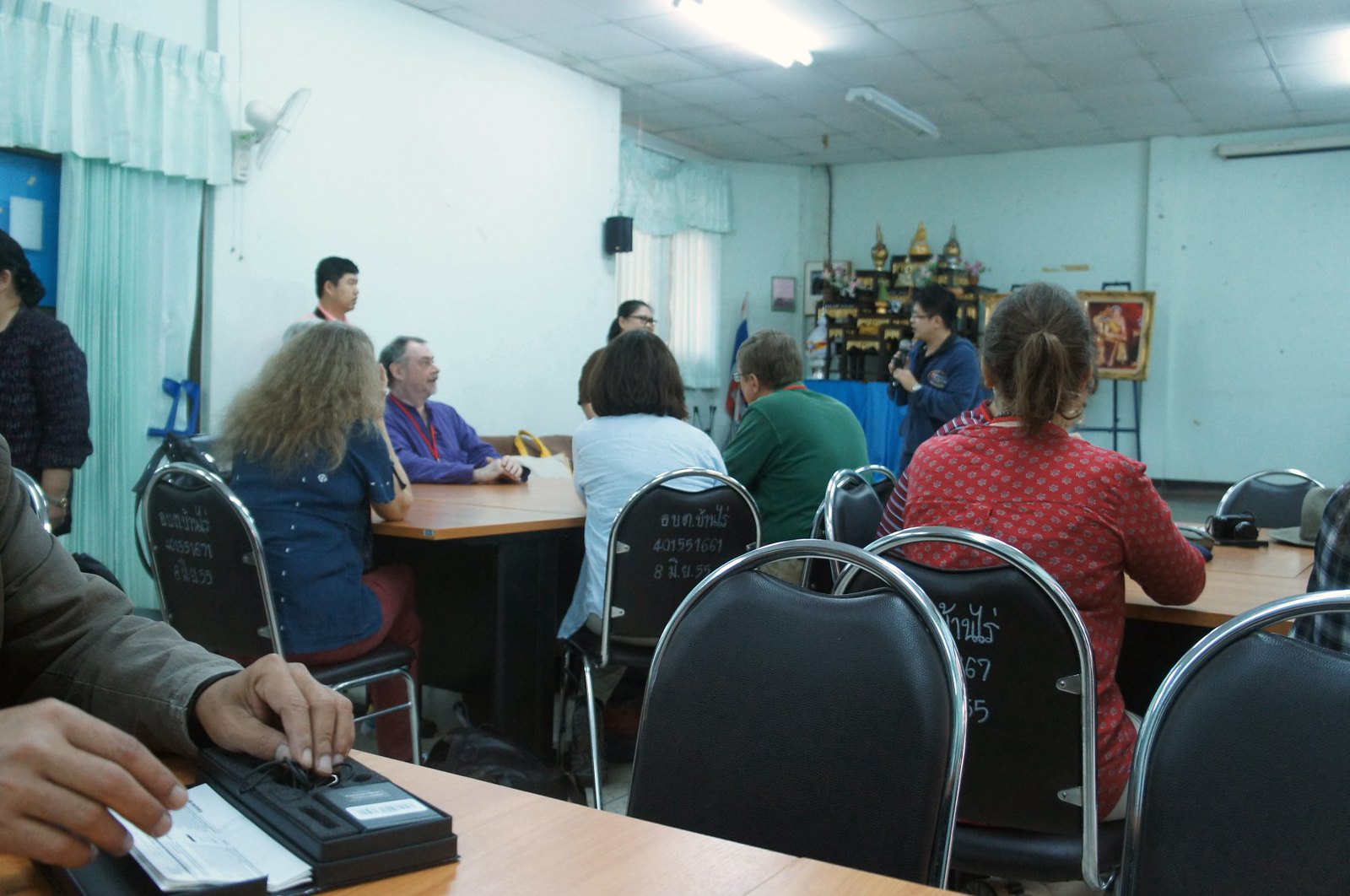
My team’s task was to record storytelling. We decided to go about this by doing a semi-structured interview, to create our own story about the lost history of Nyah Kur – both ancient and present. My team consisted of two community members, three Thai researchers and three ‘UK’ researchers (none of us actually having British nationality). If you would like to learn some Nyah Kur, go here: www.memrise.com/course/561455/nyah-kur/


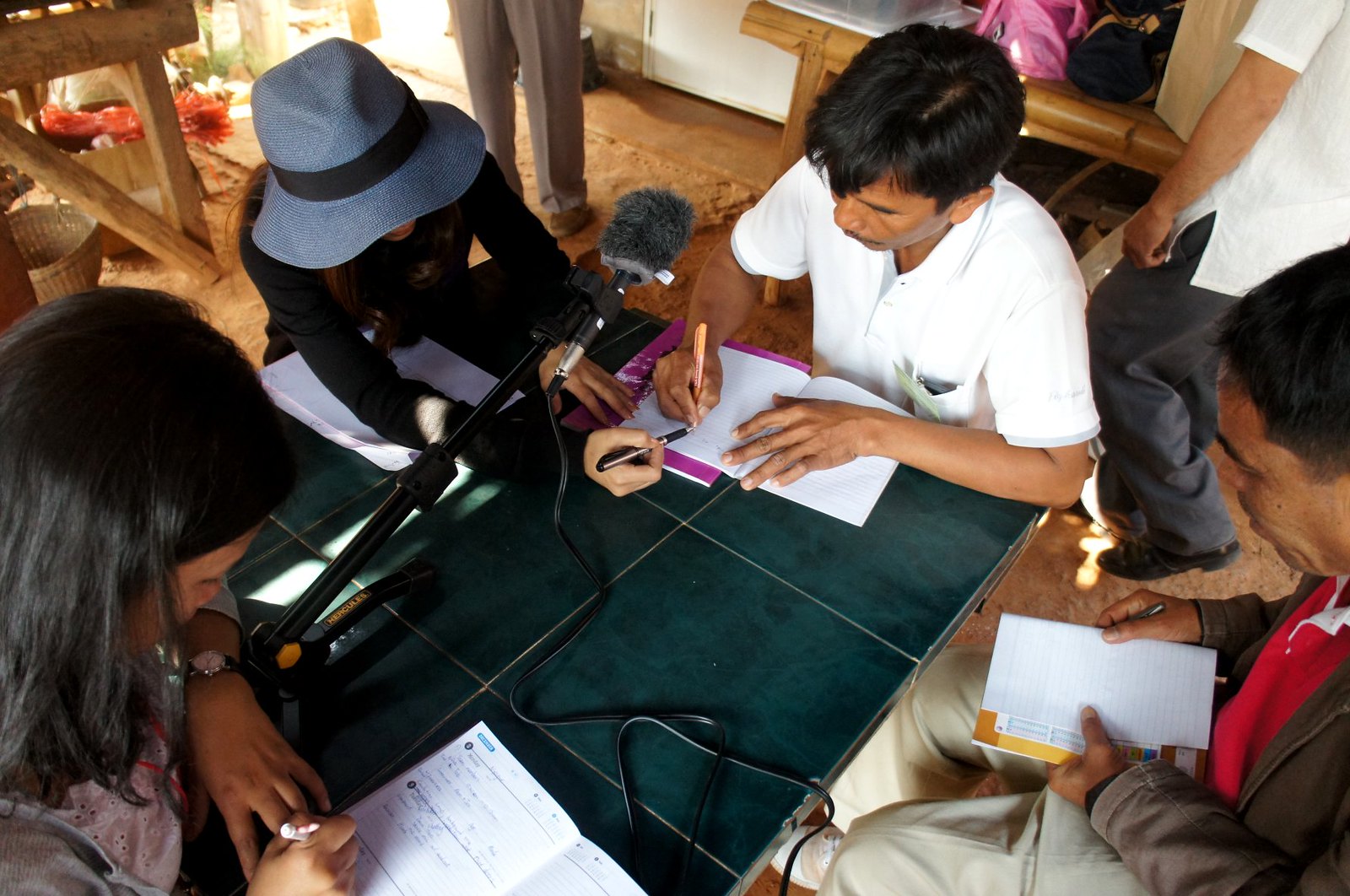

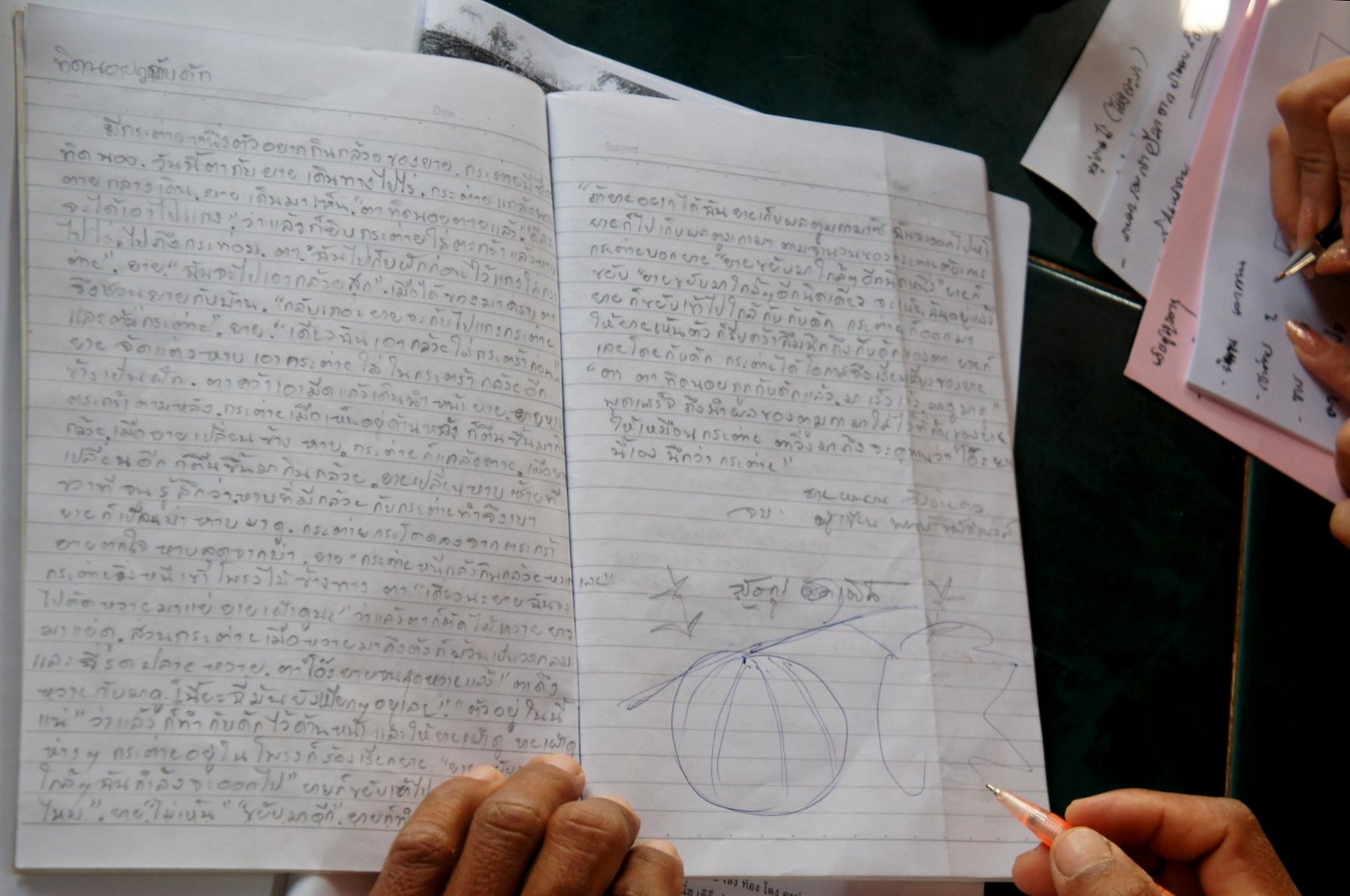

We felt very privileged to be invited into the Nyah Kur community and our teachers there were some of the most welcoming people I have ever met. Some of us were a little concerned that the resulting situation would be similar to visiting a zoo; where outsiders just stare fascination. Nothing was less true; via several languages and a lot of translation were could all talk to each other and exchange ideas equally. I only regret we had just one morning there, because real integration and understanding takes just a bit longer than that… Unfortunately, meeting Art and Phanom, and the other people there did give me a heavy sense of defeat. They were not necessarily sharing their language to save it or to revive it. They wanted to share their language because they feel it is fading away. Previously, the most endangered languages I have been very close to have been Frisian, Welsh and Irish – all of which are taught in schools. And while some times they might be considered more old-fashioned or less ‘hip’, they are still actively being defended. The feeling that the defence has truly and well been broken is new for me. Of course I know it exists, I know the global situation, but it is like visiting a war-zone. Reading about it is so very different from living in it.
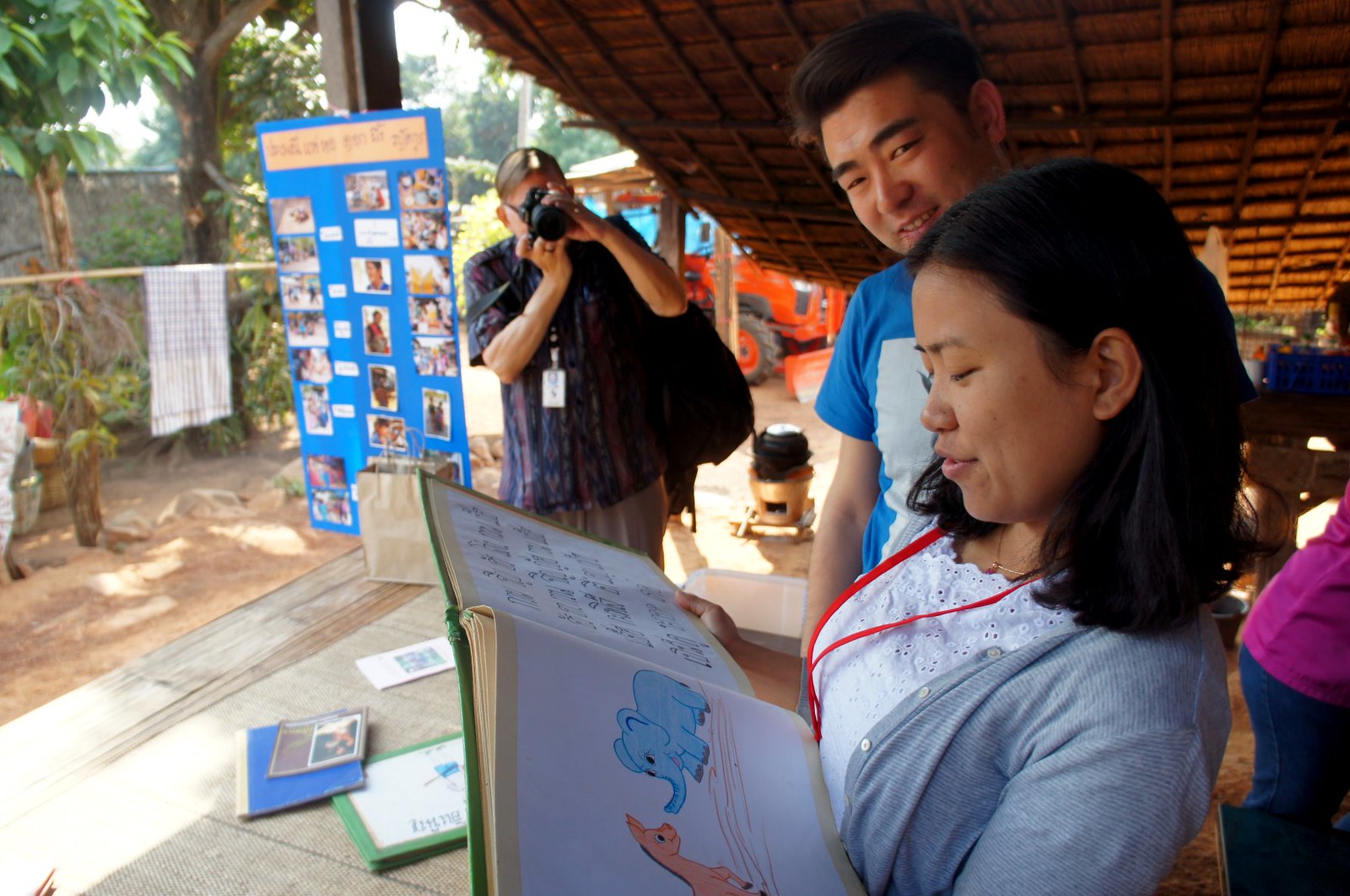
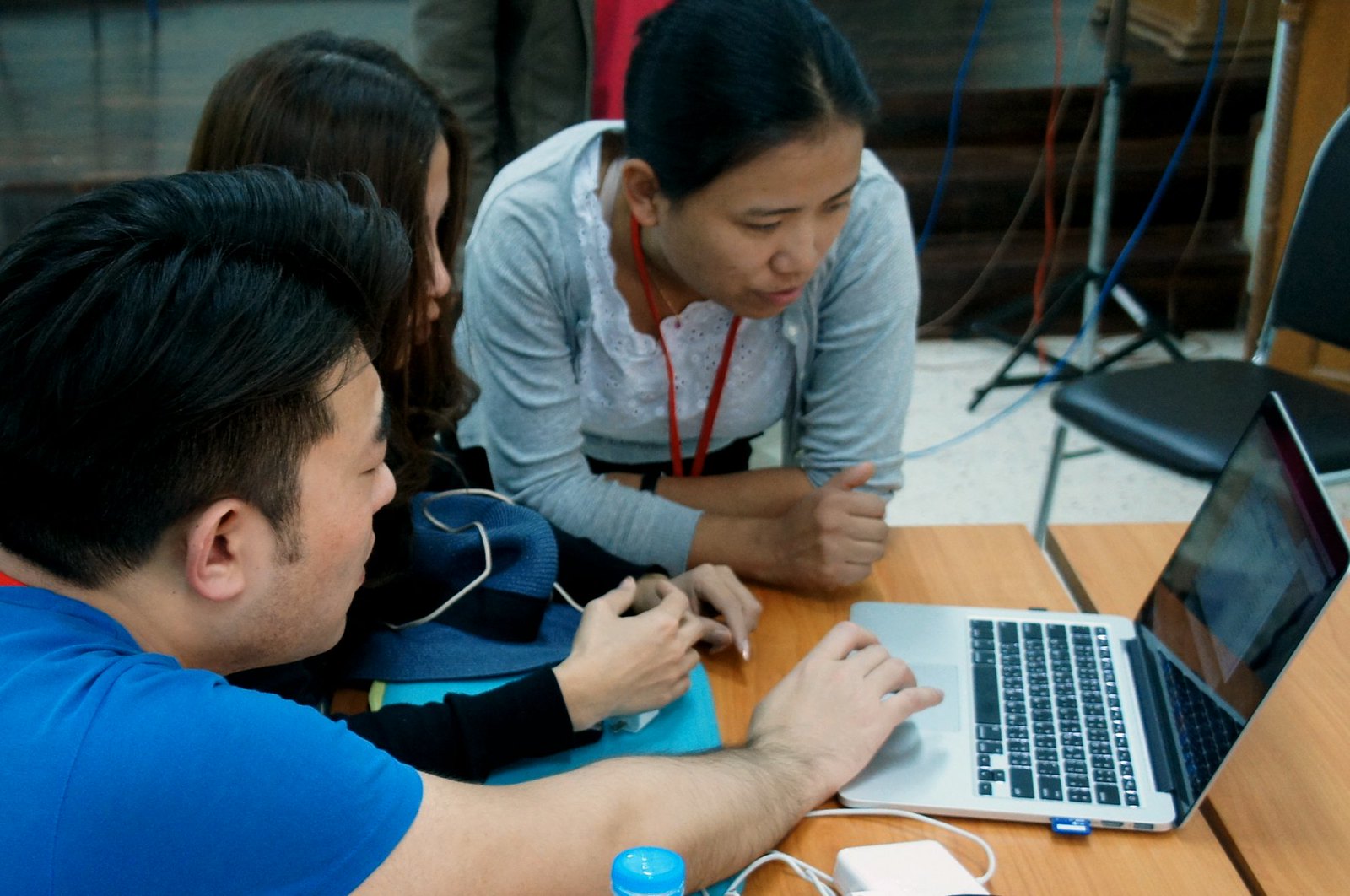
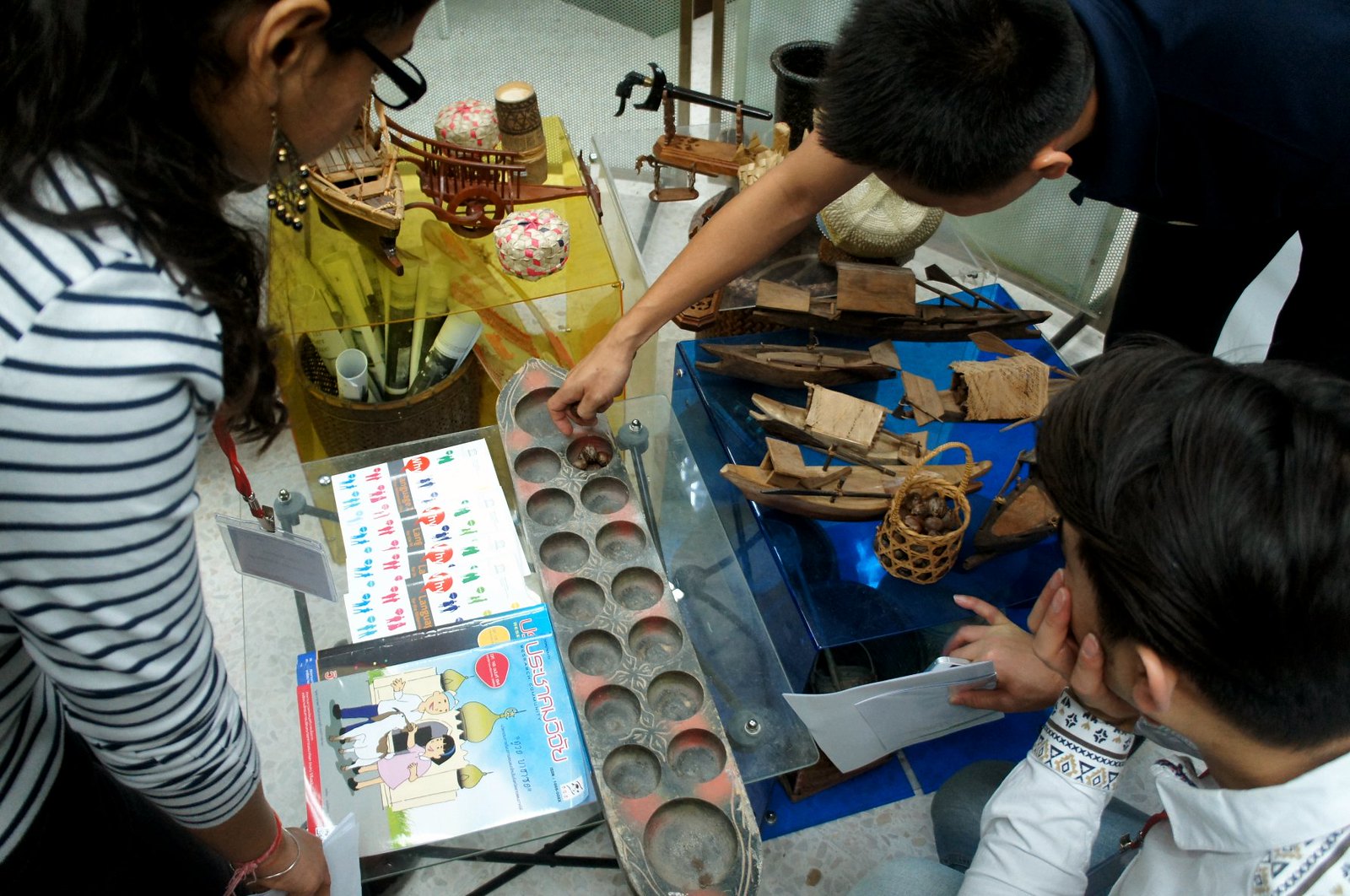
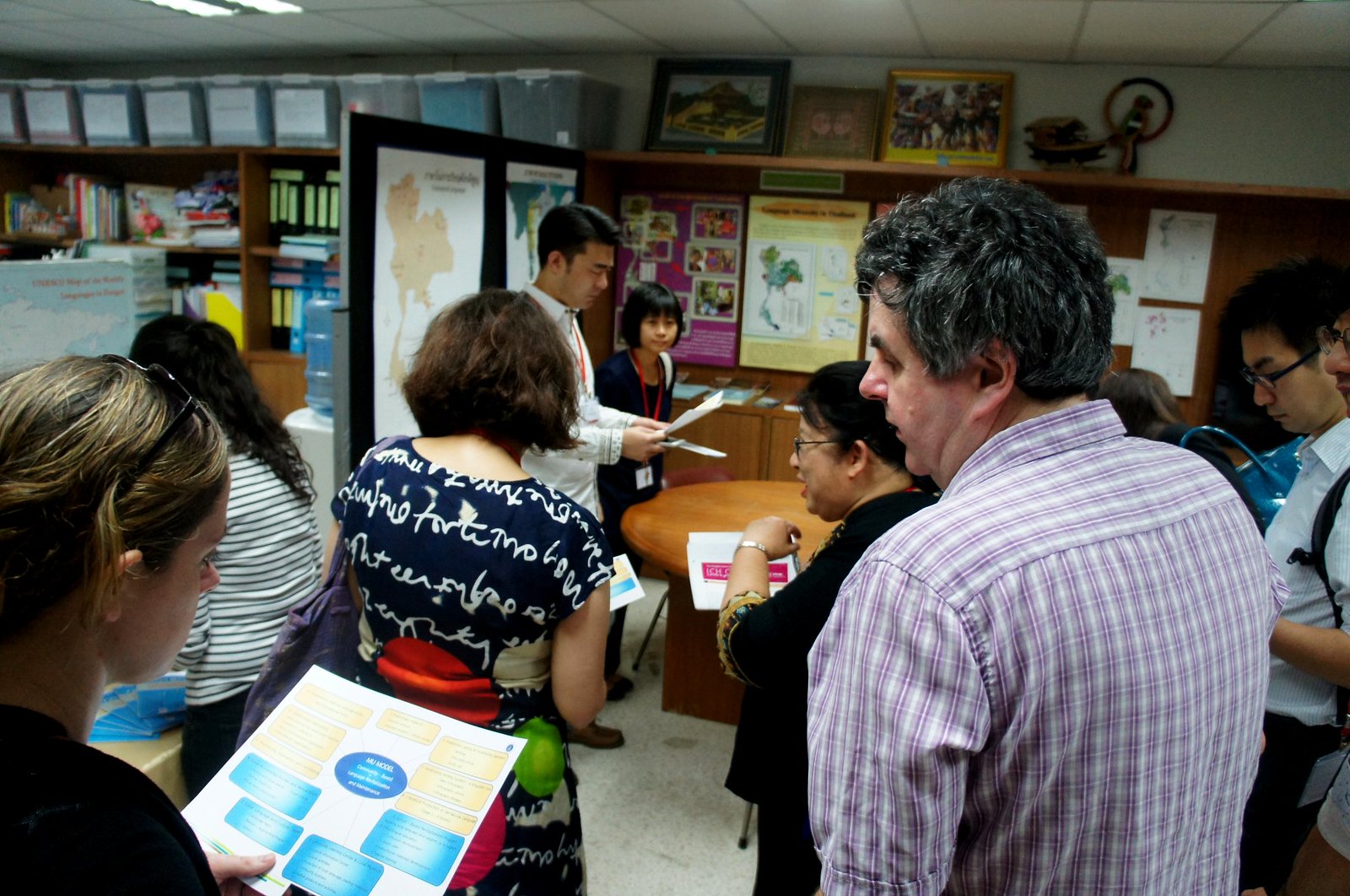
Before I went to Thailand I mainly thought I was going to acquire a new skill. I want to document and preserve endangered languages such as Aramaic, and I need to prove that I can do it. Now I can. However, the workshop also made me think about my own research a lot more than I thought it would. I encountered very many people who are excited about interdisciplinary collaboration. We were talking about the different uses of our databases, about terminology, about future projects. I know it is a cliché, but this is not the end of a workshop: it is the beginning of something new. I have no idea what, but something.

